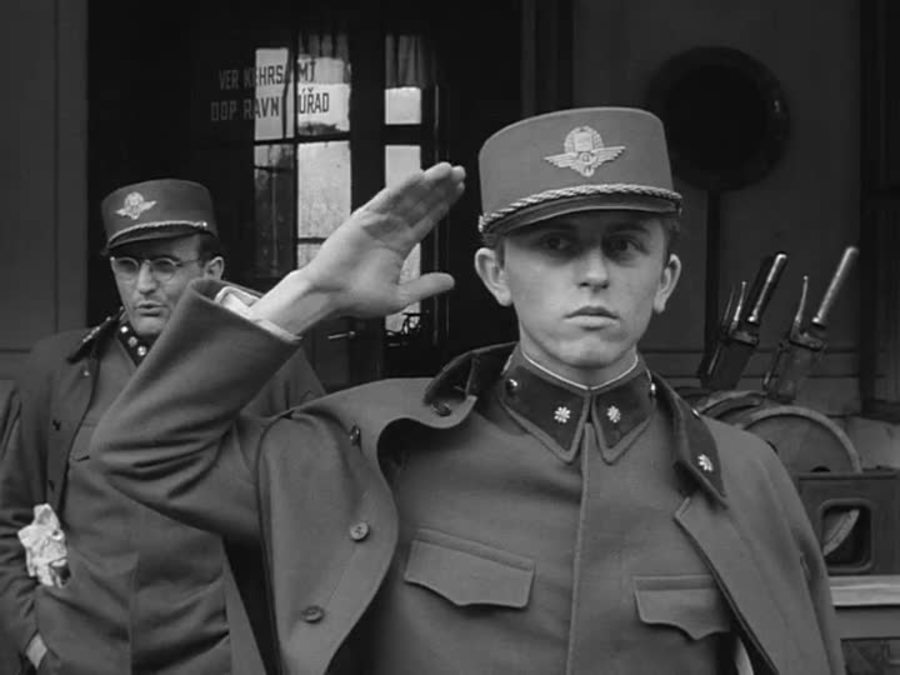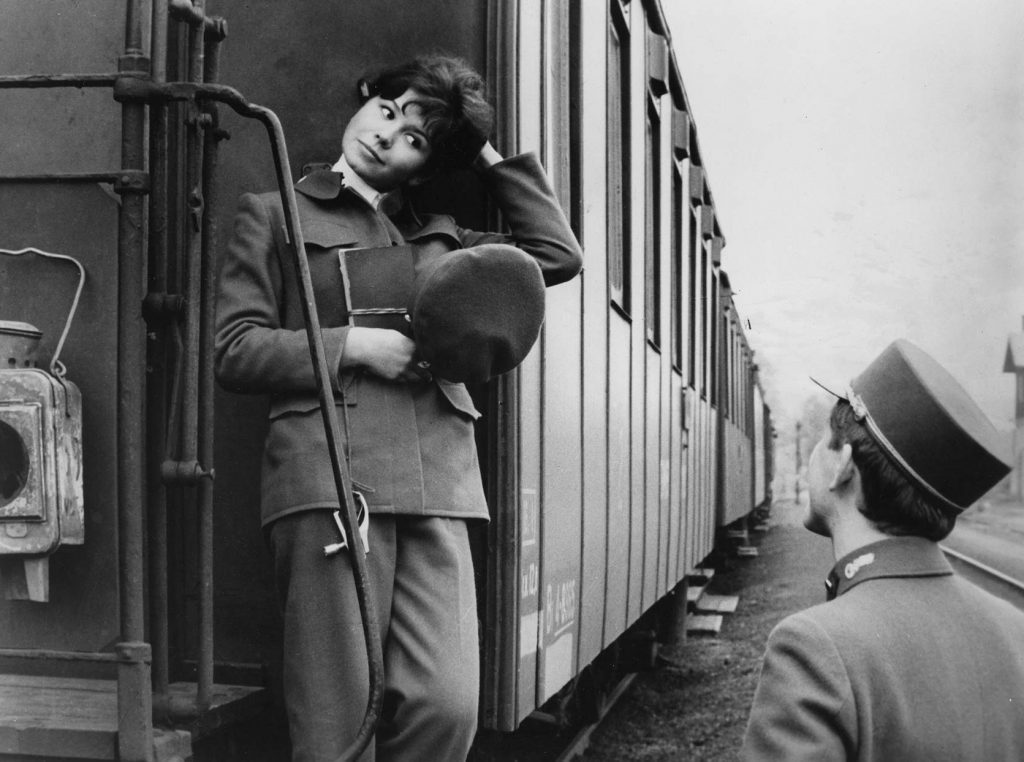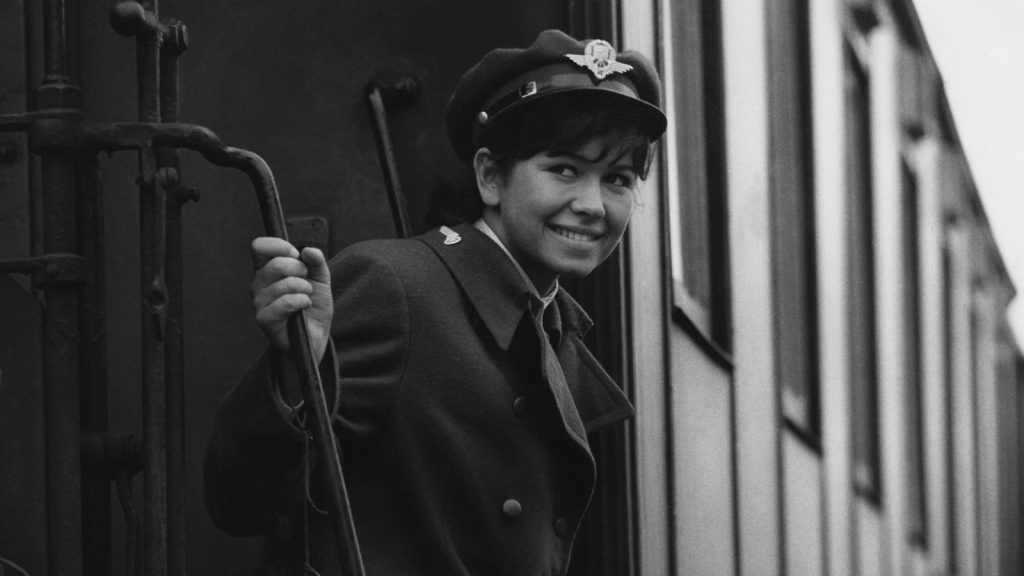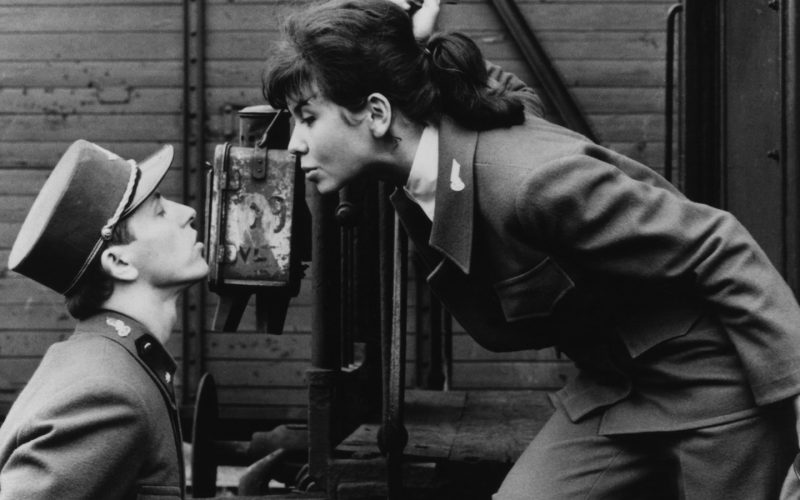Closely Watched Trains (1966).
I remember a few years ago when film critic Mark Kermode attempted to list the films with the most boring titles. This was inspired by the release of that forgettable thriller, The Accountant, which starred Ben Affleck. Cinema history is replete with titles that make you wonder what the hell the filmmakers were thinking – Everybody’s Fine, The Shipping News, The Town (another Affleck vehicle) or perhaps the worst – Riding The Bus With My Sister (which starred Rosie O’Donnell and Andie McDowell). Thankfully the title doesn’t always reflect the quality of the film.
One film that proves this is Closely Watched Trains. Try telling someone you are going to watch Closely Watched Trains and witness their likely bemusement. The alternative title, Closely Observed Trains, is hardly much of an improvement.
The trains in question however are Nazi trains carrying supplies, ammunition or soldiers to the frontline a few miles from the train station on which the film is set. It’s a curious place for, despite its proximity to the front, there is a bizarrely languorous quality about it.

Closely Watched Trains is a 1966 Czechoslovakian film directed by Jirí Menzel. It’s regarded by many as one of the finest films of the brief Czechoslovakian New Wave, a series of films from the early ‘60s to the end of Alexander Dubcek’s time in charge of the Communist Party (known as the Prague Spring) in 1968.
The main character, Milos, gets a job as a signalman at a train station. Like his recently retired father, he chooses this job because he wants an easy life and the job in question is indeed a bit of a doddle. Despite the cargo that passes every day, the station isn’t a busy one. This allows the workers to spend their time indulging in their personal interests and pastimes – anything to kill the time and to get out of doing any real work. The Stationmaster and his wife raise pigeons and geese, whereas the dispatcher, Hubicka, who seems to be careless and aimless, is in fact a bit of a lady’s man and conspirator against the Nazis. The only interruption is the occasional visit from Zednicek, a nazi who spends his time spouting propaganda at the staff, which they duly take no interest in.
Throughout the film Menzel avoids strict adherence to a single, linear storyline, instead using several vignettes which interweave into a whole. Individually they don’t add up to much but together we are presented with a charming look at a world close enough to the action for us to notice, but far enough away that none of it actually matters.

One night, distraught that he wasn’t able to perform with his girlfriend, Milos tries to commit suicide. Later the doctor (played by Menzel himself) diagnoses him with premature ejaculation and recommends he spend some time with a ‘more mature’ woman in order to get over his affliction. For the rest of the film, Milos tries to find someone who can help him with this. Meanwhile the Stationmaster seems torn between wanting to run the station smartly and efficiently, and spending too much time with the pigeons which of course results in a constant mess on his uniform.
The funniest of these little stories involves Dispatcher Hubicka seducing a young girl by stamping her legs and her derriere with the station’s ink stamp. The girl’s mother discovers the ink and takes her first to the police and then to the courts, looking for justice. At each stop she lifts her daughters skirt up showing everyone her daughter’s behind. The girl enjoys it, the police enjoy it, the judges enjoy it. The only person who doesn’t letch is a murderer who was in the middle of confessing to the judges when the mother and daughter barged into the courtroom. Although I’m no expert of Czechoslovakian history, I can only assume that this is a veiled attack on those in power in the 1940s.
The film has an almost passive quality to it. Milos doesn’t seem fully engaged in everything that’s happening around him. At one point he is kidnapped by the Nazis (presumably because he is a young male) and is only released when they discover the scars on his wrist from his attempted suicide. The scene is wordless, with the only sounds coming from the engine and there is no attempt at explanation or exposition, we just have to work it out based on the visuals presented to us. But this is fine as it gives the film a wry humour which is still engaging. It also lends the ending, when you could say Milos finally proves his manhood, more of an impact than it might have otherwise had.

You may have not heard of the Czechoslovakian New Wave and the films that were made during the period (Black Peter, Something Different, The Cry etc.) but you’ve probably heard of its most famous export, Milos Forman, director of One Flew Over the Cuckoo’s Nest, Amadeus and The People vs. Larry Flynt. Anticipating the hard times ahead and the inevitable clampdown on individual and artistic freedoms, Forman left Czechoslovakia after the collapse of the Prague Spring and the installation (by Russia) of a more hardline leader. Jirí Menzel stayed and spent many years in the artistic wilderness. This is a great pity as Closely Watched Trains is the work of a great talent, and it would have been interesting to see what else he could have done in the right circumstances.
It’s also interesting that, despite the economic and political turmoil of the time, Closely Watched Trains is so innocent and charming. The landscape is cold and unwelcoming, and the black and white photography lends the film a desolate and muddy quality, yet you can’t help but smile throughout the film. The characters are the type that ordinarily, we wouldn’t notice – in film or in life – yet for the brief 92 minutes that we spend with them, we thoroughly enjoy their company.
Even though it won the Academy Award for Best Foreign Language Film in 1968, Closely Watched Trains remains somewhat forgotten today, much like the Czechoslovakian New Wave that birthed it, but if you can find a copy then I urge you to seek it out. It’s a delightfully satisfying look at a brief period of Czech filmmaking that was all too short lived.
Film ‘89 Verdict – 8/10

